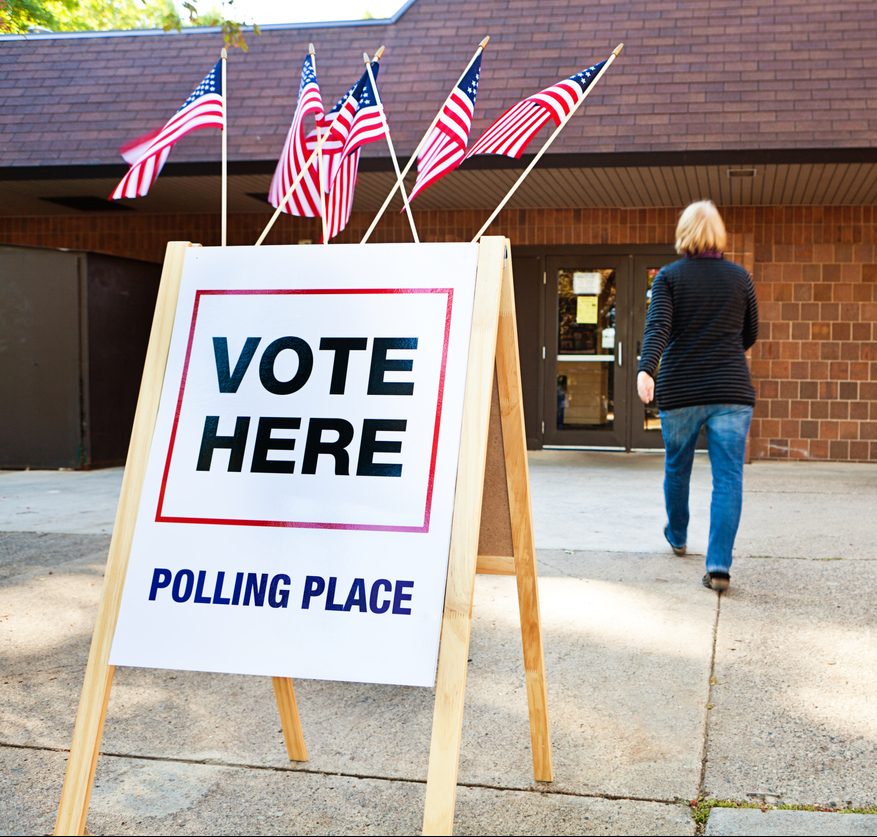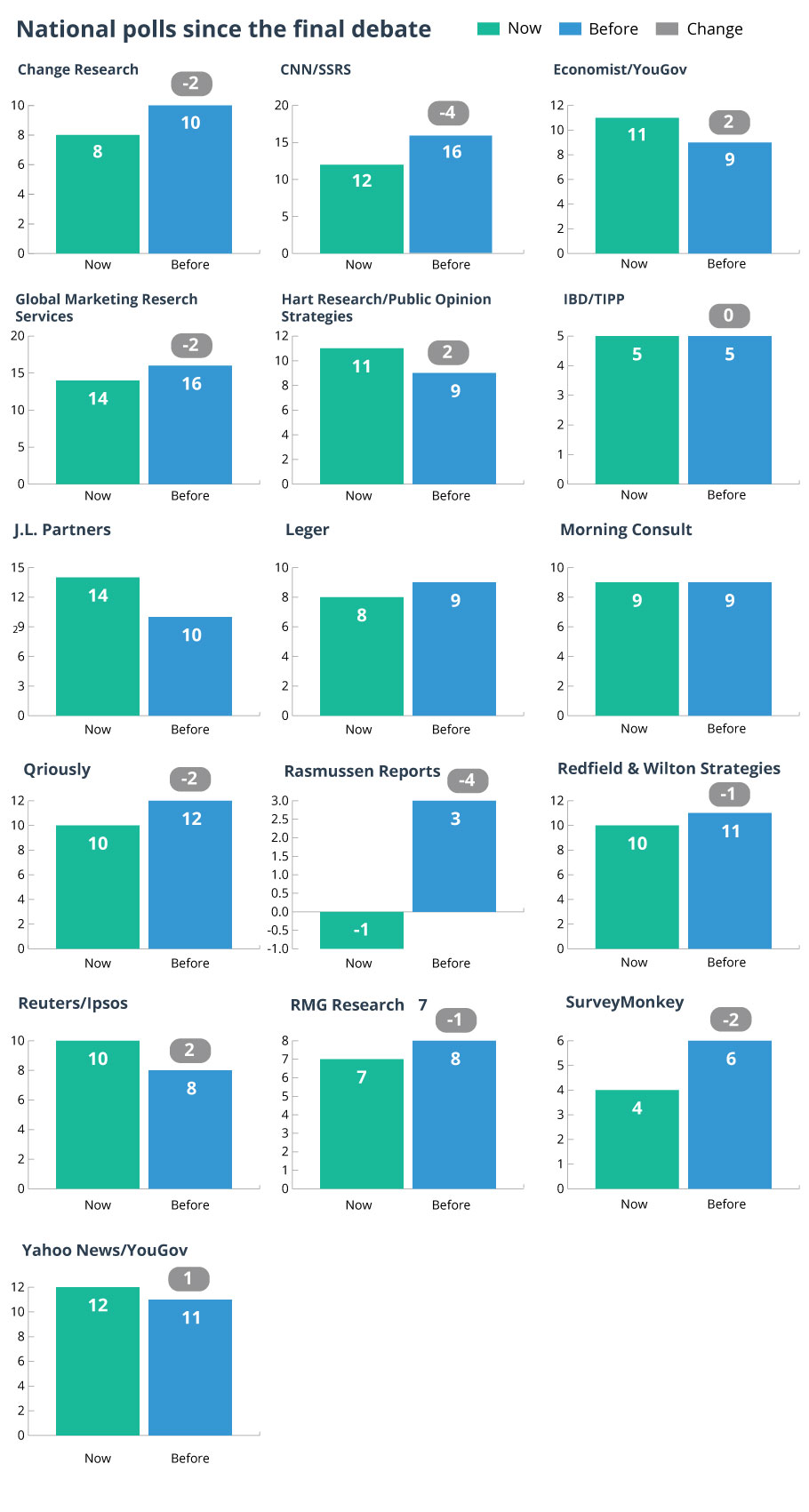
Americans head to the polls amid great apprehension

The bitter rivalry between the political contenders may not end on the night of November 3; it might well continue for several days more and probably end at the doorsteps of the United States’ Supreme Court.
In the midst of all the tongue-lashing that is in store, well-meaning people on both sides of the aisle are only hoping that the political slugfest does not spill over into the streets and with weapons. Conventional thinking is that everything will pass off peacefully if only the winner walks off with a handsome collection of electoral college votes. Anything on the margins will be trouble, spelt in capital letters.
Much of the sleepless nights for many is on account of the refusal of the incumbent Republican President Donald Trump to categorically say if he will abide by the verdict and allow for a peaceful transfer of power should he lose to Joseph Biden, the former vice president.
Related news: Trump and Biden blitzkrieg, the third spike notwithstanding
“It all depends” has been Trump’s favourite refrain and not wanting to explain what he really means by those words. The Trump campaign expects this election to go down to the wires, more or less on the lines of the Bush-Gore battle of 2000 that went on for five weeks after November 7 and settled in the courts. George W Bush was given 537 votes and the State of Florida to enable him to reach 271 electoral college votes, just one more than what is needed!
If President Trump has scheduled close to a dozen rallies in the final stages of the campaigning, that should not be surprising; and that too in the perceived closely contested battleground states of Pennsylvania, Florida, North Carolina, Michigan, Minnesota and Wisconsin. Biden too is taking aim at these states, hoping to wean away the voters that put Trump in office in 2016. The Democratic candidate and his running mate, Senator Kamala Harris, are also making a last minute push in states like Georgia and Texas. If they get even one of the two states that will be seen as a stunning comeback for a party that had literally written them off even two months ago. If Biden gets Texas and its rich crop of 38 electoral college votes, he may not even worry about losing one or two battleground states.
If President Trump is criss-crossing the battleground states, it is not without reason even if his campaign will not publicly acknowledge. The third spike in coronavirus has come to heavily bear down on states like Florida, Pennsylvania and Michigan; and for a change the President has even started addressing this issue knowing full well that he may have already lost the support of older Americans, especially women who had voted for him the last time around. A latest Washington Post-ABC News poll shows Biden ahead by 7 points in Michigan and by 10 points in Wisconsin, both seen as must-win states for the incumbent President.
Related news: Republican group opposes Trump; such dissent unthinkable in India
The early voting numbers, especially in states like Texas, must make the Trump campaign a little edgy, not that anyone has the final word. As many as 75 million people have cast their ballots either in person or mailed-in; it is said that as many as 6 million young voters in the age group of 18 to 29 have cast early votes as opposed to less than 2 million in 2016. The youngsters have especially turned out in Ohio, Texas, Georgia, Florida and North Carolina, all places where the incumbent Republican is nervous about. Adding to the woes, the Trump campaign is faced with resources crunch. In spite of this it has budgeted some US$ 10 million for television and radio advertisements, and another US$ 12 million for Florida and all in the final stages of the campaigning.
The Democrats, flush with cash, are expected to spend close to US$ 50 million in the final few days. And benefactors like Michael Bloomberg have generously stepped forward by opening up their bank accounts and shoring up the Biden campaign in places like Florida where Trump is seen as vulnerable.

There are many scenarios that are being played out in the aftermath of the November 3 elections, the first of which being that only a decisive or landslide win for Biden could ease the environment and pave the way for an orderly transition of power. But what if Trump gets re-elected but in the process the Democrats retain the House of Representatives—perhaps even pick up a few more seats—and win the Senate? Legislative business will become extremely difficult and more so if fiery Democrats again insist of going through with another Impeachment process. Although a two-thirds majority is needed in the Senate, Democrats with getting the Chamber back could bank on Republicans abandoning Trump by looking at their fortunes in the mid-term elections of 2022.
Finally, for the million dollar question: even if Biden wins by a landslide, what happens if Trump refuses to leave the White House? Pull out the 25th Amendment on Presidential Impairment process? The closest America had a brush with a non-medical exigency was when advisors to President Richard Nixon were so concerned about his mental state in the closing days of his tenure that the Defence Secretary apparently ordered the Joint Chiefs of Staff not to take any military orders from Nixon without checking. In the case of President Trump his refusal to leave office on account of a “fraudulent” election has many rattled.
Related news: Biden or Trump, tough foreign policy decisions await the next US president
In an article in The New Yorker titled “ We May Need the Twenty-fifth Amendment if Trump loses,” Jeannie Suk Gersen, a Professor of Law at Harvard, quotes John Gartner, a psychologist, as saying that the period between November 3 and January 20 (the inauguration) is likely to be the “most dangerous moment” in Trump’s Presidency.
“What does a malignant narcissistic person do when they’re enraged? They want to act out in an aggressive and sadistic way, to regain their sense of power,” Gartner maintains. And people who know President Trump will say that if there is one thing he hates it is losing, for it is not in his vocabulary.
(The writer is a former senior journalist in Washington DC covering North America and the United Nations)
(The Federal seeks to present views and opinions from all sides of the spectrum. The information, ideas or opinions in the articles are of the author and do not reflect the views of The Federal)

